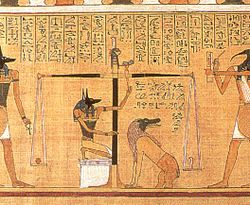 The other thing happening while Elijah was waiting oj God is that Obadiah was doing his best to save at least some of God's prophets. He managed to save 100 prophets, 50 each in two caves. That also meant he was secretly getting food and water to them so that King Ahab and Queen Jezebel would not find out. It was a big risk for him (1 Kings 18:1-6). So while Elijah is hiding in exile, no doubt wondering what God is doing back in Israel, God is using Obadiah, a man in the King's inner circle. God's plan did not depend entirely on Elijah; he had other people in place. For Reflection: We may not see or know God's full plan. We may think that everything depends on us. But God has billions of people around the world who are devoted to him and available to carry out his plans. We need never feel alone in serving God whether we see others with us or not. St. Paul offers this encouragement in Hebrews 12: We are surrounded by a great cloud of witnesses (those who have gone before us in the faith). Let us throw off everything that hinders us and run the race marked out for us. Let us fix our eyes on Jesus. Let us pray. Jesus, I realize I am not privy to your entire plan. I know I'm just a small part of it. Help me to keep my eyes fixed on you while I run the race you have marked out for me.
0 Comments
 Often when I pray with people it seems that they think God has "put them through tough times" deliberately in order to develop their character, help them grow, or whatever. Let's take a look at this concept through the lens of Joseph's story. If this concept is true, then God meant for Joseph to be sold into slavery in order to punish him for sin, or develop his character and turn him into a great leader, or even just to get him to Egypt from his homeland. First, if all God wanted was to get Joseph from Canaan to Egypt, God could have done that any number of ways without putting Joseph through turmoil and suffering. Second, Joseph's suffering helped to develop his character and abilities as a leader, but God is not the one who sold him into slavery, or falsely accused him, or put him in prison. People did that, not God. Third, clearly God was with Joseph throughout this time. Genesis 39:2-3 tell us that God was with Joseph in Potiphar's house and that Potiphar recognized this fact and that Joseph was a blessing to him. In Genesis 39:21, it clearly says that God was with Joseph in prison where he rose to a leadership position and he had favor with the warden. When Joseph went to work for Pharaoh, it became obvious that God had raised him to that position to save Egypt from the famine. God was continually blessing Joseph, not punishing him. Finally, Joseph himself recognized that what his brothers had done to him was not the work of God. "You meant evil against me; but God has used it for good, to bring it about that many people should be kept alive," Joseph tells his brothers after they are reconciled (Genesis 50:20). The evil, the slavery, the imprisonment were not God's doing. As with Joseph, God is with us in our trials, with us in our suffering. For reflection: How has God been with me in my trials? For what problems am I blaming God? Let us pray. If you, O Lord, kept a record of sins, who could stand? But with you there is forgiveness  Joseph gets no respect. Sometimes I think he is the Rodney Dangerfield of the Scriptures. Little is known about him. He has no speaking lines. After the early years of Jesus' life, he simply disappears from the story. But Joseph is a man open to hearing God's instructions in a dream and following through on them. He bases a life-long decision on that dream. And, like Mary, Joseph too says "Yes" to a sticky situation. As a man of integrity he keeps his word until the end of his life (Matthew 1:18-25). For reflection: Do I hear God in dreams? When I hear God's instructions, do I make a complete commitment to following them? Let us pray. Jesus, I don't know how many times it says in the Scriptures, "If today you hear his voice, harden not your hearts", but I know it is repeated over and over. I make a commitment to you today. If today I hear your voice, I will not harden my heart.  "Please come at once!" the messengers urged Peter. The beloved Tabitha had died (Acts 9:36-43). Why send for Peter when someone has died? What did they expect him to do? Did they want him to be there to mourn with the community, or lead a memorial service? Or did they hope he would raise her from the dead? Peter expelled the crying mourners from the room. He knelt, prayed, and then commanded Tabitha to get up. As with Aeneas (Acts 9:32-36) we see Peter use the command, "Get up." We don't know what Peter prayed while kneeling. Perhaps he was seeking the Lord's direction on whether to raise the woman back to life or let her go. And hearing that direction, he simply commands her. The faith to command, as we mentioned last week, comes from knowing the Lord's will. The purpose of healing Aeneas and raising Tabitha was two-fold: it was for the benefit of the person and it was for the benefit of the many people who heard about it and believed. Many more people came to believe in Jesus because of Aeneas and Tabitha. For reflection: People are still being healed and raised from the dead today. They may live next door to us or they may live half-way round the world and we find their stories on YouTube. The question, though, is still the same as it was in the time of Jesus - will we believe? Let us pray. Lord Jesus, I pray with the father in Mark 9:24 - "I do believe; help me overcome my unbelief!"  It strikes me as odd that the first martyr for preaching about Jesus was not one of the 12 apostles. Instead it was Stephen who is not even mentioned in Acts until 6:5. He is one of the men chosen to handle the daily distribution of food for widows, orphans and any others who had been cut off from their families. Stephen is full of faith, God's grace, the Holy Spirit and power. He did "great wonders and miraculous signs among the people" (6:8), and the Spirit gave him the words he needed when he spoke and debated with Jews and their leaders. In this short story (Acts 6:8 - 8:1) we see the fulfillment of promises made by Jesus. Jesus said, "When you are brought before synagogues, rulers and authorities, do not worry about how you will defend yourselves or what you will say, for the Holy Spirit will teach you at that time what you should say" (Luke 12:11). And at his ascension, Jesus said, "You will receive power when the Holy Spirit comes upon you, and you will be my witnesses in Jerusalem, and in all Judea and Samaria, and to the ends of the earth" (Acts 1:8). Stephen experienced the wisdom and power of the Holy Spirit enabling him to preach, debate and witness in addition to working wonders and miraculous signs. Also, the stoning of Stephen led to the followers of Jesus being scattered from Jerusalem into Judea and Samaria. The promises had not been made just to the 12, but to all those who would come after them. Stephen's tongue had been stilled, but 100 more tongues set afire. For reflection: The promises have been made to me as much as to the original 12 apostles. How have I experienced them in my life? Let us pray. Come, Holy Spirit, fill me as you filled Stephen.  Evidently Jesus healed all of the sick and disabled people who came to him because there is no record in the New Testament of his not healing someone who asked. Sometimes he even healed people because someone else asked (the Centurion's servant in Matthew 8:5-13). Often there is the mention of faith in these healings, but not always. People have searched for some common denominator in these accounts - some surefire method of healing or magic words to say. There are none. This 100% record of healing continued with the early apostles. Following the story of Ananias and Sapphira there is another short summary of apostolic activity (Acts 5:12-16). So many people were being healed by the apostles that "people brought the sick into the streets and laid them on beds and mats so that at least Peter's shadow might fall on some of them as he passed by. Crowds gathered from the towns around Jerusalem, bringing their sick and those tormented by evil spirits, and all of them were healed." If healing was such a constitutive part of the ministry of Jesus and the apostles, why do we not see more healing today in the Christian churches? Some say that the gifts in the early church (healing, prophecy, tongues) were not intended to last long. They were simply to get the church started. I disagree. Jesus said we would do the things that he did (John 14:12-14). He was here among us to set the example and that example clearly included healing. For reflection: What do I believe about healing? Have I/Could I pray with someone to be healed? Let us pray. Jesus, you are the Lord of Healing, the Source of Healing. Heal my unbelief and help me to step boldly out in any areas of ministry to which you are calling me. In honor of the National Day of Prayer for the United States, I'm posting the song Stand by John P. Kee. Pray and enjoy.
 Continuing with our story of Jesus fixing breakfast on the shore for the disciples who have been fishing, we come to the well-known talk that Jesus has with Simon (John 21:15-19). Three times Jesus asks Simon, "Do you love me?" Three times Simon Peter answers, "Yes, Lord." Jesus instructs him to "feed my sheep." Aside from the fact that these three questions parallel the triple denial of Jesus by Peter, what else might they signify? To me they show that although Peter failed Jesus miserably in his hour of need, God's call on Peter's life still remains. Peter's failure did not negate the call of God on his life. God has not given up on Peter. Jesus then says to Peter here at the end of the gospel the same thing he said at the beginning, "Follow me." But now Peter knows what "follow me" entails - persecution, being an outcast, danger, trials and death. Peter had already passed one small test since his denial and Jesus' resurrection: he fished on the other side of the boat when Jesus told him to. Now Jesus gives him a much bigger task: follow me and feed my sheep. For reflection: My failure does not negate the call of God on my life. Let us pray. Lord, I may not always be successful, but I want to be faithful. Don't let my failures keep me from trying to what you call me to do.  I guess they got tired of staying in a locked house. How long can people stay inside even if they are afraid? Fishermen are used to being outside, working, in the wee hours of the morning. In John 21, Peter decides to go fishing and 6 of the other disciples join him. These experienced fishermen had a frustrating time - they caught nothing. They were not far from shore when a man calls out to them across the water (verse 5), "Haven't you caught anything?" Hearing the answer he expected, he instructs them, "Throw your net on the right side of the boat and you will find some." Imagine the reaction of seasoned fishermen to that idea. "Who does this guy think he is?" "Oh sure, the fish are on the other side of the boat." In my family, if you don't catch any fish the reason is "you didn't hold your mouth right" which is akin to "you were fishing on the wrong side of the boat." Here was a man telling men, who made their living by fishing, how to fish. I'm amazed they tried it. I don't think I would have. For reflection: Sometimes God gives us a simple thing to do. How receptive are we to doing it? Do we have a teachable spirit? Let us pray. Jesus, I want to be faithful in the little things so that you can trust me with the bigger things.  Today we end our study of Sarah. Let's look at her strengths and accomplishments. She was faithful to Abraham, following him wherever he went. She bore Isaac, nursed him, and raised him in her old age. She was loyal to Isaac and always wanted the best for him. She became the mother of a nation and ancestor of Jesus. She believed the promise even though all she ever saw was one son, Isaac, not the many who were to come. For this she is listed in the "Faith Hall of Fame" in Hebrews 11. And her weaknesses? She had trouble believing that the promise was for her. She tried to work out her own solution to God's promise of a son by giving Hagar to Abraham. She treated Hagar (and Ishmael?) badly. I guess like most of us Sarah is a mixed bag. She does the best she can according to the way she understands. She put her faith in God and her trust in Abraham. These accomplishments were enough to put her into the "Faith Hall of Fame" and to qualify her as one of our mothers. As Isaiah says, "Listen to me you who pursue righteousness and who seek the Lord: Look to the rock from which you were cut and to the quarry from which you were hewn; look to Abraham your father and to Sarah, who gave you birth (Isaiah 51:1-2). For reflection: Who are our mothers in the faith? What strengths of theirs did we pick up? How can we thank them? Let us pray. Father, I thank you for the mothers I have had, both natural and supernatural. I thank you for their strengths in . . . . |
AliceI started this website and blog on May 1, 2012. I am a Catholic who has been in ministry for many years. I first developed what I would call a close relationship with Jesus in the early 1970s. Ever since then I have been praying with people for healing and other needs. It is because I have seen so many of these prayers answered that I am so bold as to offer to pray for you individually through this website and phone line. Archives
July 2021
Categories
All
|
Proudly powered by Weebly

 RSS Feed
RSS Feed